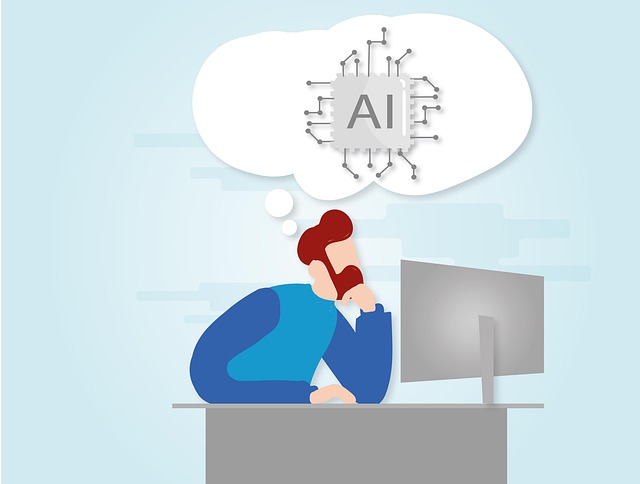# Exploring the Intersection of AI Technology and Ethics: Navigating Challenges and Opportunities
As artificial intelligence (AI) continues to permeate various sectors, the ethical implications of its deployment have become increasingly critical. The rapid advancement of AI technologies presents a dual-edged sword; while they offer unprecedented opportunities for innovation and efficiency, they also pose significant challenges that must be navigated with care. This article delves into the ethical dilemmas associated with AI, the potential for positive societal impact, and the frameworks that can guide ethical AI development.
## Understanding the Ethical Landscape of AI
Ethics in AI is a multifaceted domain that encompasses various considerations, from data privacy to algorithmic bias. One of the foremost ethical challenges is the issue of data privacy. As AI systems often rely on vast amounts of personal data to train algorithms, the potential for misuse or unauthorized access to sensitive information raises significant concerns. Individuals may find themselves vulnerable to surveillance, discrimination, or exploitation without their explicit consent. Therefore, establishing robust data protection measures is essential to safeguard individuals’ rights and maintain public trust.
Algorithmic bias represents another critical ethical dilemma. Many AI systems are trained on historical data that may reflect existing societal biases. Consequently, these systems can perpetuate or even exacerbate discrimination against marginalized groups. For instance, biased algorithms in hiring processes or law enforcement can lead to unfair treatment based on race, gender, or socioeconomic status. Addressing these biases requires a concerted effort to develop fair and transparent algorithms, alongside ongoing scrutiny of AI systems to ensure equitable outcomes.
Moreover, the accountability of AI systems poses significant ethical questions. When AI technologies make decisions that impact individuals’ lives—such as in healthcare or criminal justice—who is responsible for those decisions? The lack of clear accountability frameworks can lead to a diffusion of responsibility, making it challenging to hold anyone accountable for adverse outcomes. Establishing clear guidelines and regulations is crucial to ensure that developers and organizations are held responsible for the ethical implications of their AI systems.
## Harnessing AI for Positive Societal Impact
Despite the ethical challenges, the potential for AI to drive positive societal change is immense. In fields such as healthcare, AI can enhance diagnostic accuracy, improve patient outcomes, and streamline administrative processes. For instance, AI algorithms can analyze medical images with remarkable precision, assisting radiologists in identifying conditions such as cancer at earlier stages. By leveraging AI, healthcare providers can offer more personalized treatment plans, ultimately leading to better health outcomes for patients.
Education is another sector ripe for AI integration. Personalized learning platforms powered by AI can adapt to the unique needs and learning styles of individual students. This technology not only enhances engagement but also helps educators identify students who may require additional support. By harnessing AI in education, we can foster a more inclusive learning environment that caters to diverse student populations.
Furthermore, AI can play a pivotal role in addressing global challenges such as climate change and resource management. Advanced predictive models can analyze vast datasets to forecast environmental changes, enabling policymakers to make informed decisions. Additionally, AI can optimize energy consumption in various industries, contributing to sustainability efforts. By focusing on the positive applications of AI, society can harness its power to tackle pressing issues while remaining vigilant about the ethical implications.
## Establishing Ethical Frameworks for AI Development
Navigating the ethical landscape of AI requires the establishment of comprehensive frameworks that guide the responsible development and deployment of these technologies. Various stakeholders, including governments, industry leaders, and academia, must collaborate to create guidelines that prioritize ethical considerations in AI.
Governments play a crucial role in regulating AI technologies. By enacting laws and policies that address data privacy, algorithmic transparency, and accountability, they can establish a legal framework that ensures ethical practices in AI development. For instance, the European Union’s General Data Protection Regulation (GDPR) has set a precedent for data protection, emphasizing the importance of individual consent and data security in the digital age.
Industry leaders also have a responsibility to prioritize ethics in their AI initiatives. Many organizations are now adopting ethical AI principles, which include fairness, transparency, and accountability. By integrating these principles into their development processes, companies can mitigate biases and enhance the ethical integrity of their AI systems. Moreover, fostering a culture of ethical awareness within organizations can empower employees to recognize and address ethical dilemmas as they arise.
Lastly, academia plays a vital role in shaping the discourse around AI ethics. Research institutions can contribute by studying the societal impacts of AI technologies and developing frameworks that inform best practices. By engaging in interdisciplinary collaboration, scholars can explore the ethical implications of AI from various perspectives, ensuring that diverse viewpoints are considered in the development of ethical guidelines.
## Conclusion: A Collective Responsibility
Navigating the intersection of AI technology and ethics is a complex endeavor that requires a collective effort from all stakeholders involved. As AI continues to evolve, it is imperative to remain vigilant about the ethical implications of its deployment. By addressing challenges such as data privacy, algorithmic bias, and accountability, we can create a more equitable and just society.
Embracing the opportunities that AI presents while prioritizing ethical considerations will ultimately lead to a future where technology serves humanity’s best interests. Through collaboration and commitment to ethical principles, we can harness the transformative power of AI to drive positive change while safeguarding the rights and dignity of individuals. The journey toward ethical AI is ongoing, and it is a responsibility we all share.











